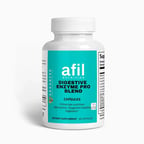Zinc (Heavy Metal)
Zinc is an essential mineral but can cause intolerance when overconsumed or inhaled in industrial settings. Symptoms range from digestive upset to mineral imbalances and respiratory irritation. Managing zinc exposure, maintaining mineral balance, and supporting detox pathways can help reduce sensitivity and improve overall well-being.
🌍 What is Zinc?
Zinc is an essential trace mineral that plays a vital role in immune function, wound healing, and enzyme activity. While it is crucial for overall health, excessive exposure or sensitivity to zinc—particularly in industrial or supplemental forms—can lead to intolerance. Zinc is commonly found in dietary supplements, fortified foods, industrial coatings, and certain medications.
🤔 Why Do I Have an Intolerance to Zinc?
Zinc intolerance can arise due to overexposure, difficulty metabolizing the mineral, or cross-reactivity with other heavy metals.
• Excessive supplementation – High doses of zinc in supplements can lead to nausea, digestive issues, and mineral imbalances.
• Industrial exposure – Zinc fumes from welding, galvanization, and manufacturing can cause respiratory irritation.
• Metal allergies – Sensitivity to nickel or other metals may increase reactivity to zinc.
• Imbalance with copper and iron – Excess zinc can deplete other essential minerals, leading to fatigue and neurological symptoms.
• Digestive discomfort – Some individuals experience nausea, vomiting, or stomach pain from zinc-containing foods or supplements.
🛠️ What Can I Do About It?
• Reduce supplemental intake – If taking high-dose zinc, lower your dosage and monitor symptoms.
• Check for metal allergies – If you react to jewelry or metal objects, you may be more prone to zinc sensitivity.
• Avoid inhalation exposure – Use protective gear if working in metal industries.
• Balance mineral levels – Increase copper and iron intake to counteract excessive zinc absorption.
• Support digestive health – Take zinc with food and ensure adequate stomach acid production to improve tolerance.
💊 Which Supplements Can Help with Chemical Sensitivities?
- Copper – Helps maintain mineral balance when zinc is too high.

- Iron – Prevents deficiencies caused by excess zinc intake.
- Magnesium & Calcium – Supports nerve and muscle function, reducing heavy metal toxicity effects.


- Milk Thistle & NAC (N-Acetyl Cysteine) – Aids liver detoxification of heavy metals.

- Probiotics & Digestive Enzymes – Supports gut health and improves mineral absorption.


🌟 Why Might I React to Zinc but Not Other Metals?
• Over-supplementation risk – Zinc is widely used in cold remedies and immune boosters, leading to unintentional excess.
• High industrial exposure – Zinc fumes from welding and metalwork increase inhalation risks.
• Mineral imbalances – Zinc competes with copper and iron for absorption, leading to deficiencies and reactivity.
• Stomach sensitivity – Zinc can irritate the digestive tract, especially when taken on an empty stomach.
🍽️ Common Exposure Sources
• Zinc supplements and multivitamins
• Cold lozenges and immune-boosting products
• Galvanized metal coatings and welding fumes
• Fortified cereals and processed foods
• Some dental materials and medical ointments
🍽️ Alternatives (if tolerated)
• Whole food sources of zinc – Opt for naturally occurring zinc in foods like seeds, nuts, and grass-fed meats.
• Copper-rich foods – Include shellfish, organ meats, and dark chocolate to maintain mineral balance.
• Iron supplementation (if needed) – Helps counteract excess zinc effects.
• Protective measures in industrial settings – Wear masks and ensure proper ventilation when exposed to metal fumes.
.png?width=100&height=75&name=AFIL%20Logo%20(1).png)